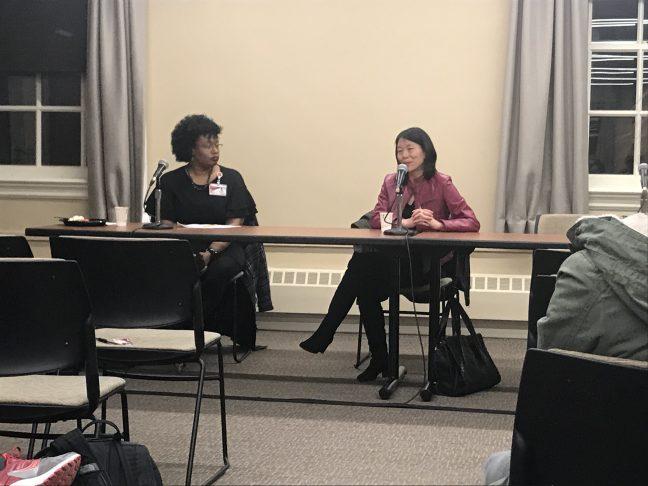A panel of women leaders in STEM fields spoke Monday about how they have refused to let their identities as women of color in fields of disproportionately white men hold them back from career achievement and advancement.
The Wisconsin Union Directorate Committee on Global Connections and Cuisine hosted the panel for their 2018 Women of Color Week. Panelists included management and human resources professor Min Li and endocrinology and reproductive physiology professor Beverly Hutcherson.
The panelists touched on a number of subjects, including the roles gender, race, social norms, biases and their personal experiences play in the workplace.
Both women believed gender disparity was rarely a factor in either of their careers. Drawing upon their personal upbringings and experiences, both Li and Hutcherson alluded to living in a “bubble,” in which gender never hindered their achievement in the workplace.
“I have never felt oppressed by my gender,” Hutcherson said, “I grew up with the evidence that women are badasses.”
Li discussed growing up as a female in China where there was no blatant attack on her being a woman. She recalled feeling her parents’ support and living in a society that viewed women as equals.
Contrary to what she expected others might think, Li said the worst stereotypes she said she faced were those from people back in China after she moved to the U.S.
“People could not see me teaching an advanced, undergraduate classes in subject material other than Chinese,” Li said.
The panelists spoke about the importance of fighting back against the differential treatment of women, particularly women of color, and not letting gender or any difference define them.
Native American community members of Madison discuss how treaties have exacerbated inequalities
Hutcherson said she has noticed an expectation of failure among groups she speaks to because she is a black woman in a STEM field.
“You can choose to be oppressed by that thing — be it your gender, race, sexual orientation — or you can be a trailblazer,” Hutcherson said. “I don’t let my external factors affect my outcomes.”
Both women conceded that identifying a solution to such a broad social problem is difficult and progress in recent years has been made, but much less than what would like to be seen. Li said the gender gap is still present, the metaphorical glass ceiling is still unbroken, and women are still being forced to make adjustments to their career because of social norms, including child birth and familial caregiving.
Hutcherson and Li said they are confident these societal issues, while problematic, are undoubtedly solvable.
In photos: Women’s March brings colorful protest for justice to Madison streets
“These systems were bulit by people and they can be changed by people — but we cannot do that until we change ourselves,” Hutcherson said. “The next generation can do this.”
Li said it takes both the individual and the system to correct biases and only when changes are made at the orgaizational and societal level can equlity and acceptancebe be realized.
Through heightened awareness, giving others the benefit of the doubt, behaving decently towards others, and remembering everyone is human, Li said progress can be made.
“The fundamental issue is that there is no diversity in [your] social networks. You need to expand your social networks, and even get uncomfortable,” Hutcherson said. “Stop looking for gender to be a problem, and stop assuming everyone is living in oppression.”














